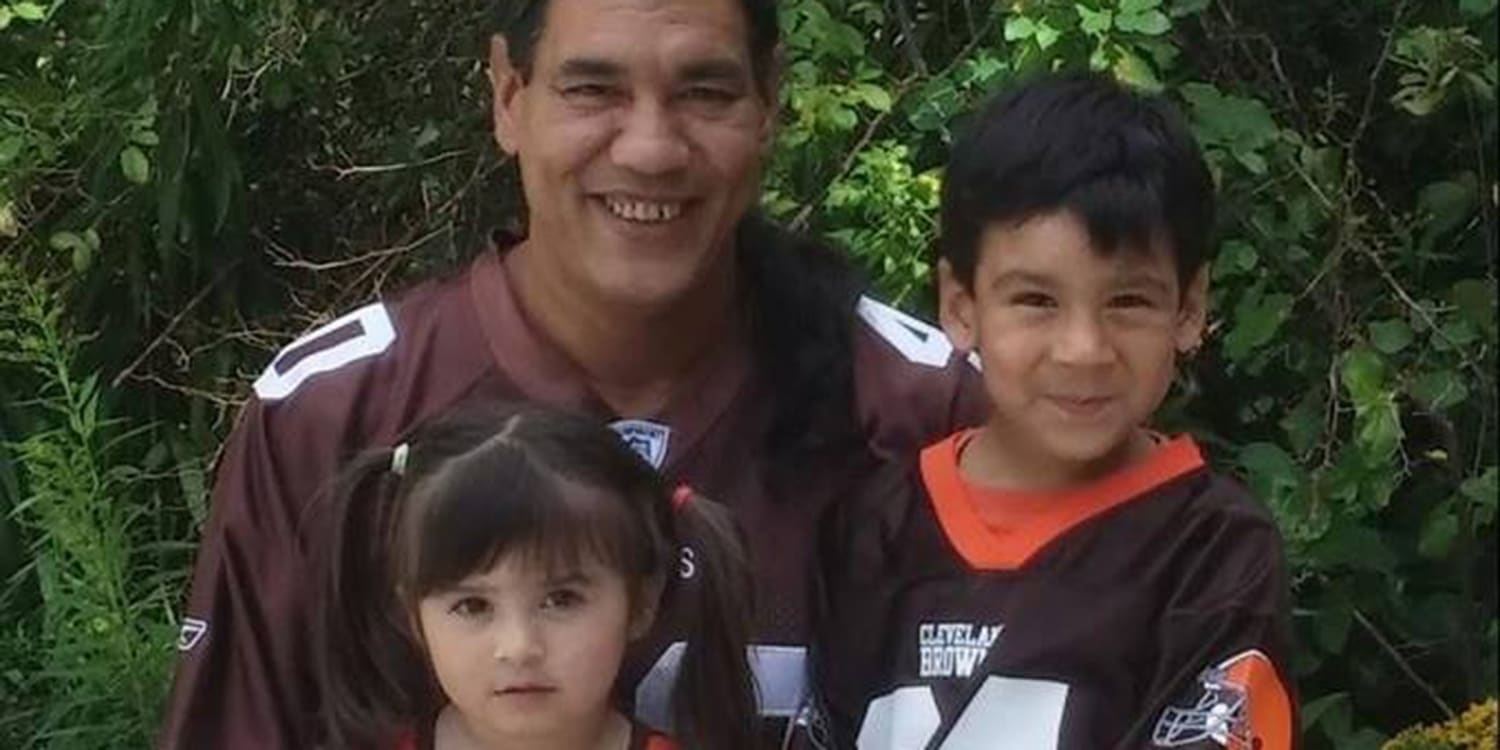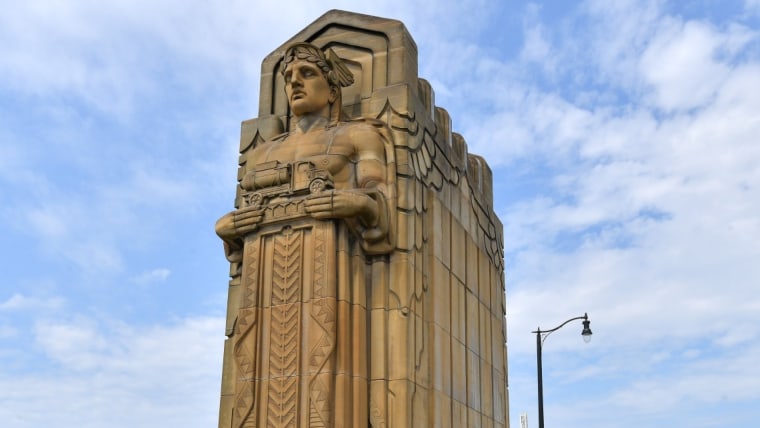Philp Yenyo has been waiting for 20 years to take his kids to a baseball game.
Now, thanks to the Cleveland Indians’ decision to change their name to the Cleveland Guardians, the Native American dad can finally go.
“For them to be seen as human beings instead of a sports team mascot is really important,” said Yenyo, of the Mēxihcah nation.
On July 23, the Cleveland baseball team announced they would become the Cleveland Guardians at the end of the 2021 baseball season.
“I’ve been waiting for the day to be able to take my family to a game,” Yenyo, the father of a 9-year-old daughter and 11-year-old son, told TODAY Parents, adding that disrespectful “war whooping,” face paint, and feathers at the stadium has kept them away.
Born and raised in Cleveland, Yenyo has been advocating for the team’s name change since 1991.
Yenyo works as the director of the American Indian Movement of Ohio, an organization that educates the public on issues affecting the Indigenous peoples of the Americas. He noted that studies have shown the negative impact Native American mascots have on children.
“Not just Native children, but all children,” he explained. “It continues to empower these negative stereotypes as who we are as human beings.”
In 2005, the American Psychological Association called for “the immediate retirement of all American Indian mascots, symbols, images and personalities by schools, colleges, universities, athletic teams and organizations,” citing negative effects on students.
“American Indian mascots are harmful not only because they are often negative, but because they remind American Indians of the limited ways in which others see them,” Stephanie Fryberg, PhD, University of Arizona said. “This in turn restricts the number of ways American Indians can see themselves.”
Yenyo has an adult child as well and is grandfather to a 1-year-old, who will grow up only knowing the Guardians name.
“I think for me to know that he’s going to be seen as a human being instead of a buffoonish cartoon is really important for his well being, his self esteem, (and) his mental status,” Yenyo said. “I think that holds true for a lot of Native children.”
After the team announced the name change, Cleveland Mayor Frank Jackson issued a statement that read:
“I want to congratulate the Cleveland Guardians on their new name and thank them for listening to the community. Cleveland has long been a sports town and baseball is a central part of our history and our future. The Guardians name has a significant meaning to Cleveland due to its connection to our iconic ‘Guardians of Traffic’ sculptures on the Hope Memorial Bridge.”
Mom of six Jessica Vallejo, who works as the secretary of the Committee of 500 of Dignity and Resistance — an organization committed to enhancing and protecting the cultural human rights and heritage rights of Indigenous people — told TODAY she is grateful her kids will not have to continue confronting this particular harmful stereotype.
“Native mascot imagery should not continue,” she said. “The research is out there that proves there is a positive improvement in mental health when the mascots are removed.”
Vallejo’s children range in age from 2-18.
“They have a future that is more tolerant and understanding of their existence,” she said. Of course, as she noted, the MLB name change is just one small part of a larger national problem.
More than 1,800 K-12 school teams still use Native American-related mascots, according to the National Congress of American Indians. Change is happening slowly; the battle to get rid of racist names started in earnest during the 1960s, and in 2021, 42 schools changed their mascot names. And that change makes a difference: According to multiple independent studies, Native American imagery and stereotypes in sports cause Native American children and adults to report lower self-worth.
As a white parent in Ohio, Tiffany Dux recognizes the importance of the new name.
“We need to keep moving forward,” she shared. “We’re season ticket holders and I actually sent them a thank you email to say that I was glad for the change.”
The Cleveland Indigenous Coalition said in a statement that the name change is the culmination of over sixty years of grassroots advocacy.
“Our community has worked tirelessly to be recognized as diverse and vibrant, instead of being portrayed in inaccurate and harmful ways,” the statement posted by Lake Erie Native American Council read. “This name change will help create a place where Native American children and their families are valued and fully seen.”
Vallejo said the MLB name change is just the beginning.
“Our next leg of this fight is to get proper education for students and allow truth to be told,” she said. “I think that for the first time we, as a community, are able to see a future where we don’t have to explain ourselves, where people will be willing to learn and desire to seek that education about who we are and what our communities look like.”
Related:
Source: | This article originally belongs to Nbcnews.com











